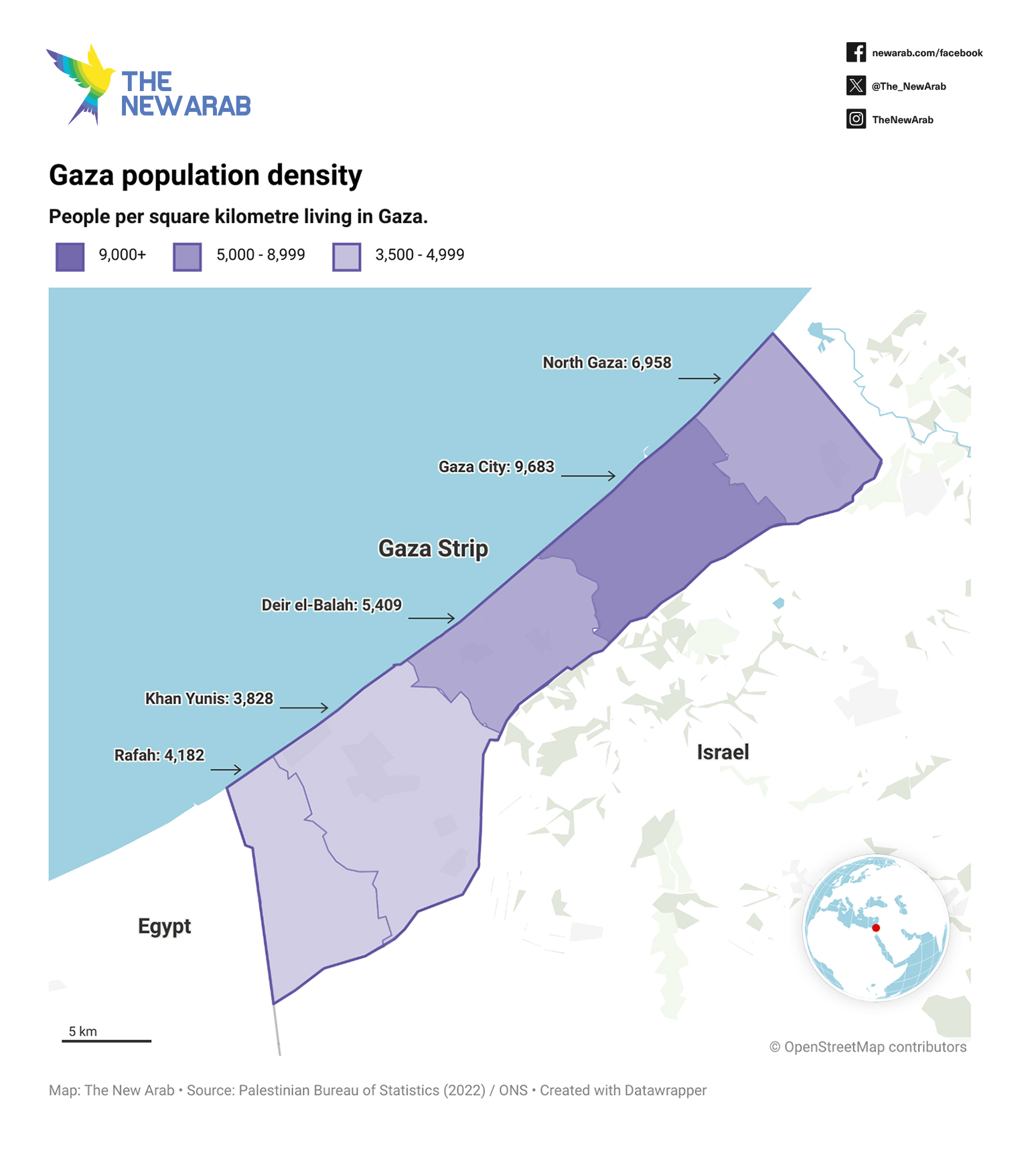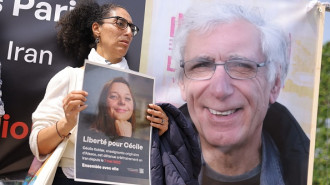Iraqi militias discuss Israel's new war on Gaza with Iran's Quds Force
As Israel's new war on Gaza enters its eleventh day, concerns are growing over the potential involvement of Iran-backed militias in Iraq, with the risk of further regional escalation and destabilisation.
Israel has launched relentless air strikes against the Gaza Strip in response to a surprise attack by Hamas fighters on 7 October.
The situation is compounded by the deployment of nearly 2,000 US Marines and sailors to the coast of Israel, CNN reported on Monday, 16 October.
Last week, Iran-backed Iraqi militias warned that if Israel attacks Lebanon's Hezbollah and the US is directly involved in the war, they will open a northern front against Israel from Lebanon and target US interests and bases in Iraq.
On Monday, three Iranian officials from the Quds Force held meetings with heads of the Iraqi armed factions before departing for Syria, sources close to Iraq's Popular Mobilisation Forces (PMF) told Al-Araby Al-Jadeed, The New Arab's Arabic sister language.
One of the sources, speaking on condition of anonymity, confirmed that the Iranian officials met with three factions of PMF, including Akram al-Kaebi, head of the Al-Nujaba, and Qais Khazali, head of Asa'ib Ahl al-Haq, and Hadi al-Amiri, head of Badr Organisation.
 "The discussions primarily centred on the current situation in Gaza, the possibility of escalation in southern Lebanon with Hezbollah, and the role of the so-called Islamic resistance axe in Iraq," the source said.
"The discussions primarily centred on the current situation in Gaza, the possibility of escalation in southern Lebanon with Hezbollah, and the role of the so-called Islamic resistance axe in Iraq," the source said.
TNA contacted several security and defence committee members in the Iraqi parliament, but they were not immediately available to comment.
Iran's Foreign Minister, Hossein Amir-Abdollahian, hinted at the possibility of pre-emptive action by the "resistance axis," referring to Iran's proxies in the Middle East, including militias in Iraq, Yemen, Lebanon and Syria.
"The possibility of pre-emptive action by the resistance axis is expected in the coming hours," Iran's foreign minister, Hossein Amir-Abdollahian, said in a live broadcast to state TV, as he referred to his meeting with Hezbollah leader Hassan Nasrallah on Saturday.
On Tuesday, tensions escalated further as the US rejected a Russian-drafted Security Council resolution for being insufficiently critical of Hamas.
"We are always looking around us, in the entire Middle East," the Times of Israel on Sunday quoted Daniel Hagari, an Israeli army spokesperson, as saying.
"The IDF will operate anywhere in the Middle East to fulfil Israel's security aims. We are highly prepared in all arenas," he added.
Another source echoed similar details, stating that the Iranian officials were en route to Syria through Iraq by land, emphasising the importance of coordinating efforts and maintaining a unified response should the current confrontations expand to Lebanon.
The sources also denied allegations that armed factions from Iraq were relocating to Syria, explaining that Iraqi factions were present in Syria to combat the Islamic State militants. They also indicated that the Iraqi militias in Syria can swiftly move and act as needed.
Typically, media wings of Iraqi factions do not issue statements regarding meetings with Iranian officials during their visits to Iraq.
Kamal Afat Al-Jubouri, a security expert and retired Iraqi army officer, stated to the outlet that the Iraqi factions are under Iran's control when it comes to entering the conflict, and any involvement from these factions would imply an Iranian military intervention.
He added that Iran aims to keep these factions on standby, anticipating any developments in Lebanon, Syria, and Iraq. Therefore, the visit of Iranian military officials may be part of Iran's efforts to keep its allies among these factions informed about the latest developments.
Iranian Foreign Minister Hussein Amir Abdollahian visited Iraq on Thursday and met with Iraq's Prime Minister Mohammed Shia Al-Sudani. They discussed the continuing Israeli bombardments against civilians in Gaza.
Abdollahian warned Friday that the violence could spread to other parts of the Middle East if Israel's attacks on the Gaza Strip don't stop immediately.
The death toll from Israeli strikes on the Gaza Strip has risen to 2,808, Gaza's health ministry said Monday, as officials said 64 per cent of these casualties were women and children.
The ministry added that around 11,000 people have also been injured as Israel continued its withering air campaign on the Palestinian coastal enclave.
PMF was founded in June 2014 after a fatwa (a religious call to action) was issued by Ayatollah Ali al-Sistani, the spiritual leader of Iraq's Shias. Al-Sistani asked young men to step up to fight the Islamic State (IS), the extremist group that tore through Syria before capturing a third of Iraq in the summer of 2014.
PMF militias were officially incorporated into the Iraqi armed forces in 2016. However, some still back Iranian agendas in Iraq and proudly show their loyalty to Iran.





 Follow the Middle East's top stories in English at The New Arab on Google News
Follow the Middle East's top stories in English at The New Arab on Google News

![The law could be enforced against teachers without prior notice [Getty]](/sites/default/files/styles/image_330x185/public/2178740715.jpeg?h=a5f2f23a&itok=xMdFOAIF)
